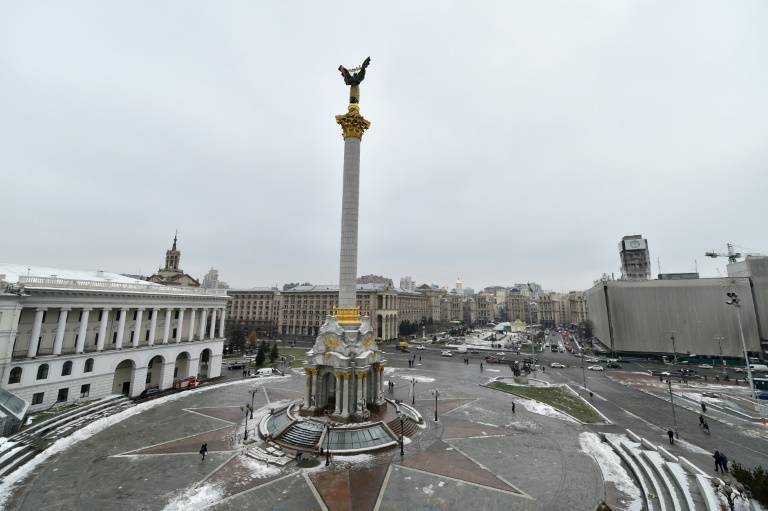Ukraine's central bank keeps trying to shut them down but they keep surviving: 'zombie banks' are roiling the impoverished country's financial system through the help of allegedly crooked courts.
The former Soviet republic -- labelled the continent's most corrupt state by the European Court of Auditors on Wednesday -- needs financial aid from the International Monetary Fund to help stabilise its path out of a dire two-year recession.
But one of the IMF's main demands for more lending under its $17.5-billion (16.2-billion-euro) programme is for Ukraine to shutter troubled banks whose assets are smaller than their bad loans and therefore need government help to stay open.
That is what the National Bank of Ukraine (NBU) has been trying to do -- with varying success.
- 'Nothing but garbage' -
A somewhat exacerbated director of the NBU's legal department said that owners targeted by Ukraine's main financial institution keep finding ways to stay afloat.
Oleg Zamorsky said nine banks ordered to cease operations by the NBU were resurrected by the courts by early December.
An earlier central bank stress test found that 28 of 39 lenders checked lacked the required cash on hand to survive another potential economic crisis.
"The justice system is being used by bank owners that have been removed from the financial system for their own personal gain," the NBU's Zamorsky said in a statement issued on Wednesday.
"This, in turn, scuttles our efforts to make the Ukrainian banking system healthy and to clean up the sector from zombie banks and banks that are nothing but garbage."
He added that the disputed court rulings created a threat to Ukraine's entire financial sector and were a danger to people who put their life savings in such banks.
There was no immediate response from the nine lenders mentioned by Zamorsky or the courts involved.
But the IMF concluded its latest mission to Kiev last month without agreeing the terms or the timeframe for a new loan.
"While good progress has been made, the authorities need some more time to implement policies to ensure medium-term fiscal sustainability... safeguard financial stability, and tackle corruption," the IMF team said on November 11.
Ukraine's economy is on course to grow by about one percent this year after having contracted by about 17 percent in 2014-15.
Much of that nosedive was attributed to a collapse in production and a flight for safety by foreign investors frightened by the 31-month pro-Russian separatist conflict in the east that has claimed nearly 10,000 lives.
- Biggest bank's bad loans -
Yet there could be an even larger threat looming: the country's biggest lender might just be headed under.
PrivatBank accounts for one in three bank accounts in Ukraine and even has branches in the Baltic states.
The bank is owned by Igor Kolomoyskiy -- a politically powerful billionaire who became an early target of Ukrainian President Petro Poroshenko's uphill fight against corruption.
The problem for the tycoon is that his bank has been rumoured to be the target for a state takeover because of Ukraine's need to fill its coffers. It has also been the subject of local media reports that it issued loans to select insiders that may never be repaid.
That talk alone saw the value of PrivatBank's bonds fall by nearly 50 percent in late November.
The NBU wants Kolomoyskiy to refinance his bank with billions of dollars if he wants to keep it.
Kiev's International Institute of Business chief Oleksandr Savchenko told the Kyiv Post English-language weekly that Ukraine's banking system would be left in tatters were PrivatBank to close.
"Other banks would not be getting their loans back from PrivatBank, a series of bankruptcies would begin, and there would be panic," Savchenko was quoted as saying.
"Re-launching the system would take around one or two months; the loss to GDP would be around two to three percent."






